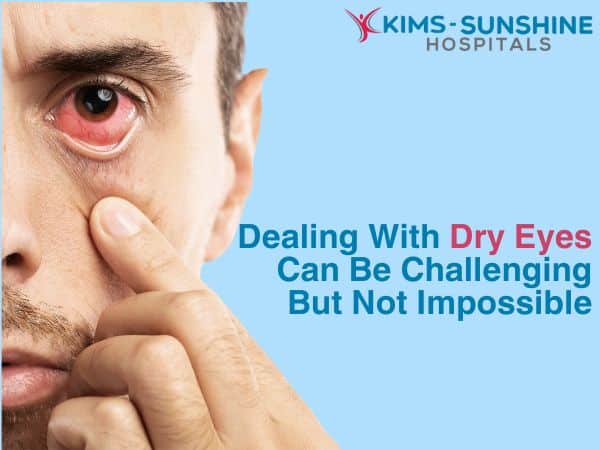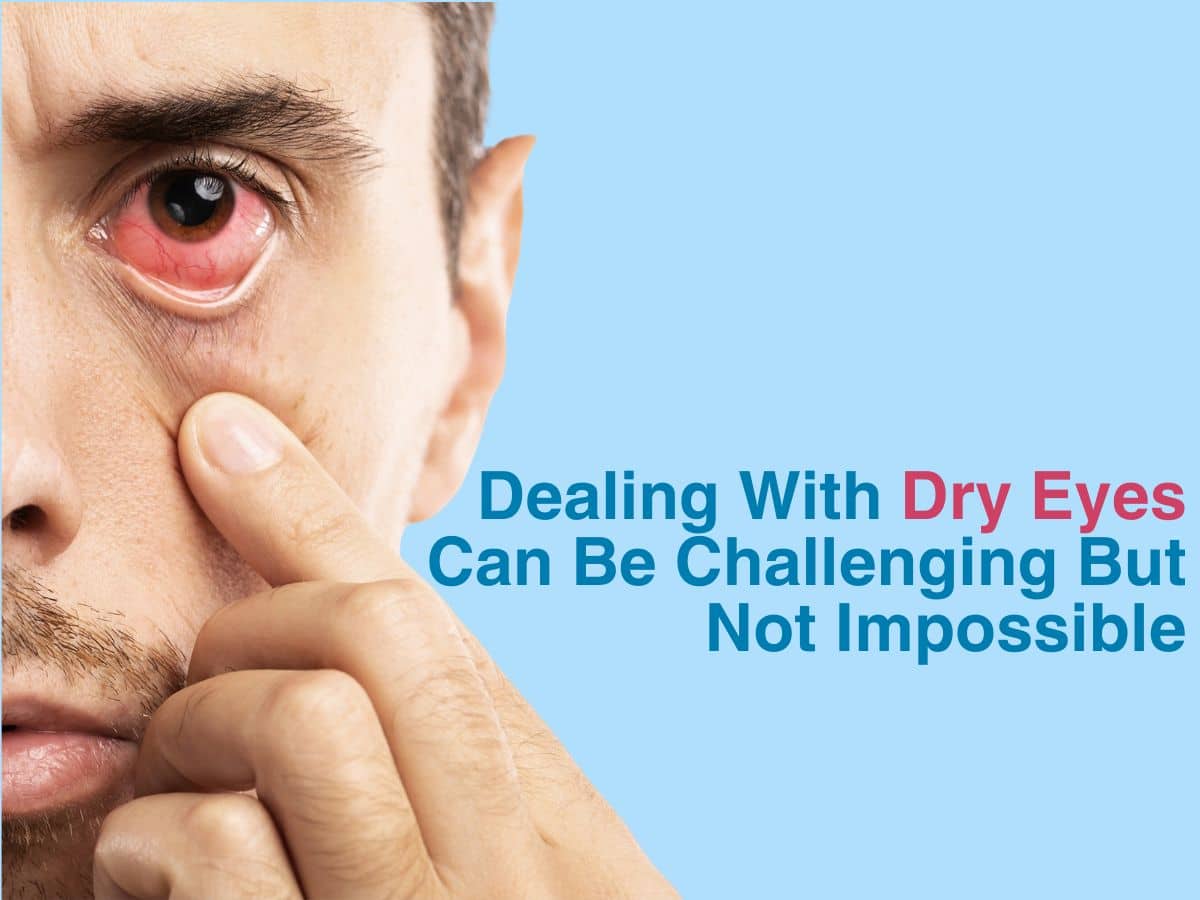
Dealing With Dry Eyes Can Be Challenging But Not Impossible

Our eyes have the natural tendency to produce tears whenever necessary, and when we blink, we help by washing the fluid all over the eyeball. But, when the tear (lacrimal) glands don’t produce enough tears, the eyes can feel dry and scratchy. The quality of tears also matter, and not just the quantity. So, you may be producing sufficient tears but it may not be enough. The good news is there are treatments available to deal with the problem. But you cannot stop doing it. You will need to continue using the specific treatments for many years to come.
What Causes Dry Eyes And How To Treat Them
When the tear glands don’t produce copious amounts of tears or poor quality tears, we are left to deal with the consequences in the form of dry eyes, also called keratoconjunctivitis sicca. There are various causes attributed to this symptom:
- Natural ageing
- Medical conditions like lupus, rheumatoid arthritis, scleroderma, graft vs. host disease, sarcoidosis or thyroid disorders.
- Deficiency of Vitamin A
- Side effects from medication like antihistamines, hormone replacement therapy, antidepressants, acne, birth control, Parkinson’s Disease
- Continual contact lens usage, LASIK etc.
The different treatment options available include:
- Lubricating drops,
- Medication to reduce inflammation of eyelids,
- Eye inserts which function like artificial tears,
- Cholinergic medications to stimulate tear production
- Surgical interventions are also available. The tear glands are permanently closed.
- Usage of special contact lenses
- Nasal spray to increase tear production
- Eye drops made from your own blood, also called autologous blood serum drops
- Light therapy
- Eyelid massage
Best Over-The-Counter Drops For Dry Eyes
Some great and easily available options that do not need a prescription include artificial tears drops, anti-redness drops and anti-allergy drops respectively.
Dry Eyes And Contact Lenses – Solutions
Constant contact lens usage can exacerbate dryness in eyes. So, try to reduce usage as much as possible, massage your eyes gently and use warm compresses as needed. Don’t forget to blink every couple minutes, and follow the 20-20-20 rule.
Dry Eye Syndrome And Menopause Connection
Dryness in the eyes is commonly increased during menopause, and this is due to a shift in hormones in the body- particularly the decrease in testosterone. Sex hormones are vital for the continual maintenance of many parts of the eyes like the cornea, the neural cells, the immune system, production and evaporation of tears and its drainage too. Dry eyes can cause blurry vision, itchiness, redness and light sensitivity.
How To Manage Dry Eyes After LASIK
LASIK surgery is a godsend for people who otherwise have to deal with astigmatism or are myopic (short-sighted). Healing after the surgery takes time, and one of the common symptoms faced by patients is dry eyes. This is because the nerves in your eyes are cut off, and they may not heal well, causing tears to not be formed later on. Using prescription medicines and drops should help. Avoid any form of exercise, take plenty of rest and stay hydrated. No more screen time for you for some time.
Conclusion
Dry eyes is naturally a symptom caused due to ageing, but may also be due to a variety of medical conditions. The treatments used commonly have different approaches to ensure lubricated eyes- artificial tear drops, reducing inflammation, reducing ocular strain, increasing tear production or even surgically preventing its drainage from the eyes. Whatever the method used, your doctor should be able to guide you through it all, and you will feel better soon.
Frequently Asked Questions






